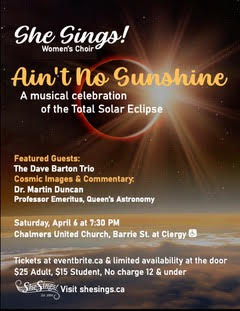Dr. Martin Duncan was born in London, England and was raised in Montreal, Canada. As a child, his biggest question was, “What would happen if…?” His first experiments involved creating foul-smelling concoctions with his chemistry set in his parents’ basement. He survived and went on to complete an Honours Physics degree at McGill University, followed by graduate degrees in astronomy at the Universities of Toronto and Texas at Austin. Post-doctoral research was performed at Cornell University, the University of Toronto and the University of California, Santa Cruz. In 1988, he became a professor of astronomy and physics at Queen’s University in Kingston, Ontario.
In his academic career he has co-authored over 120 scientific papers, which have been cited over 8,000 times. He has presented numerous invited talks at international scientific conferences and has been the guest speaker at many public lectures. His research has ranged from the study of black holes to simulations of the formation and orbital evolution of planets and comets. He is best known for the prediction of the existence of a disk of small icy bodies beyond Neptune, which he and his colleagues called the Kuiper Belt. In 1996, the International Astronomical Union named Asteroid 6115 “martinduncan” in honor of his contributions to planetary dynamics.
The celestial songs to be performed include Blue Skies, Stormy Weather, the heavenly choral work Sure on this Shining Light, Dolly Parton’s “Light of a Clear Blue Morning”, and of course, Bill Wither’s “Ain’t No Sunshine When She’s Gone”.


 Ad Choices
Ad Choices